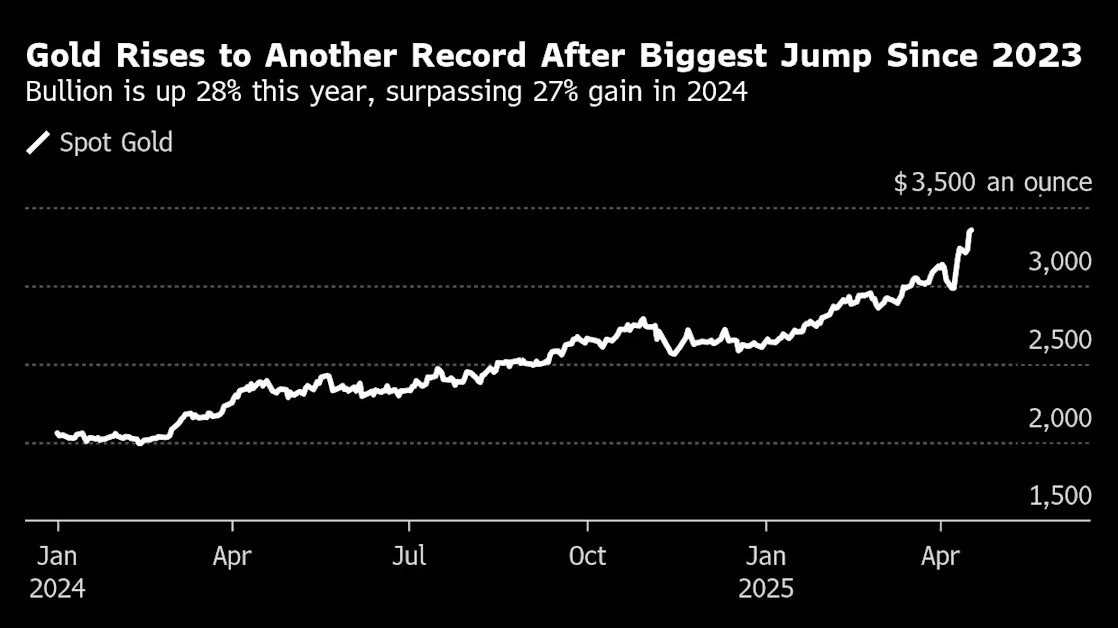
US Stock Futures Rise on Optimism Over Trade Talks: Markets Wrap
(Bloomberg) -- Stock futures signaled a rebound on Wall Street as positive signals from initial US-Japan trade talks stirred optimism agreements can be reached to avoid higher levies on American trading partners.
Most Read from Bloomberg
S&P 500 contracts climbed 0.9%, indicating a bounce back after Wednesday’s 2.2% slide. European stocks edged lower ahead of the European Central Bank’s decision on interest rates and on a busy day of corporate earnings.
President Donald Trump said there was “big progress” in talks to strike a deal for Japan. The yen weakened after the country’s chief trade negotiator said currencies weren’t discussed, allaying concerns the US would push for a stronger exchange rate. Gold hit a record on demand for havens while Treasury yields and a gauge of the dollar climbed.
Following the turmoil triggered by the announcement of broad US levies earlier this month, investors are focusing more on developments in country-specific trade negotiations. A key question surrounds China, after Beijing indicated Wednesday it has several conditions for agreeing to talks with the Trump administration.
“The trajectory of US-Japan trade talks will continue to be closely monitored, not just for their bilateral implications, but also as a potential framework for how the US may approach trade relationships with other allies,” said Rajeev De Mello, a global macro portfolio manager at Gama Asset Management.
The ECB is expected to cut rates for the seventh time later Thursday, after Trump’s tariffs darkened the economic outlook. With trade negotiations still in flux, President Christine Lagarde is unlikely offer clear indications on where rates will go next.
Meanwhile, Federal Reserve Chair Jerome Powell on Wednesday signaled a wait-and-see approach to tariffs, pusing back on hopes the central bank would act quicly to soothe investor fears. His comments, along with renewed concerns over the tech sector, helped end a two-day consolidation in stocks.
“The only ‘Fed put’ that the Fed could envisage is if there was a risk of market dislocation, which is not the case at the moment,” said Enguerrand Artaz, a fund manager at La Financière de l’Echiquier. “When you look at the data, there is no need to intervene. Markets going down is not a reason in itself to intervene, especially not at these levels of valuation.”